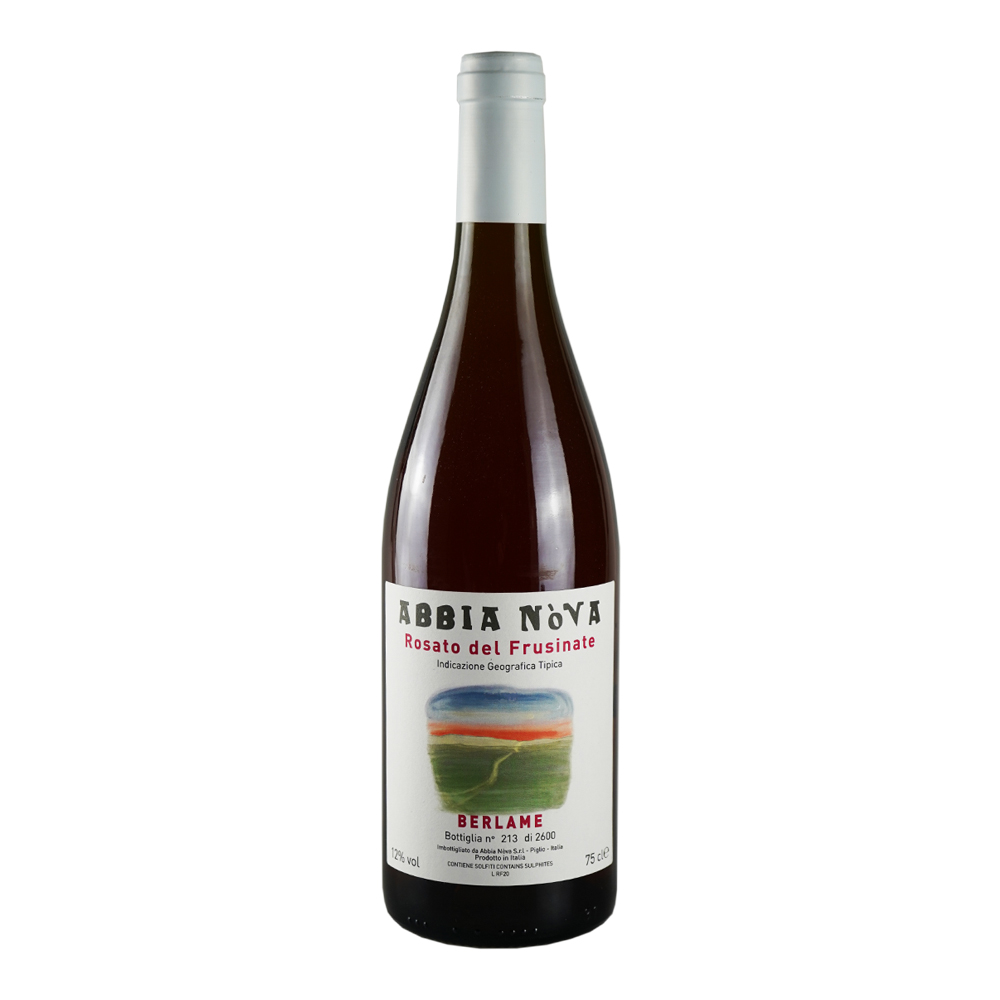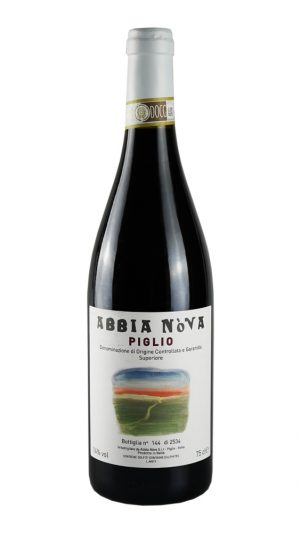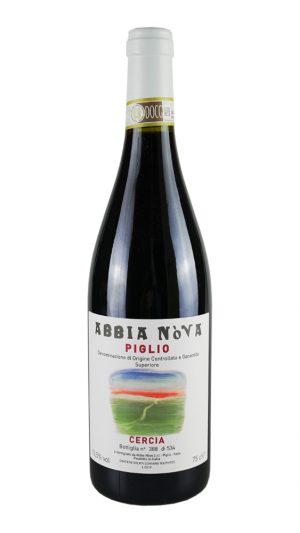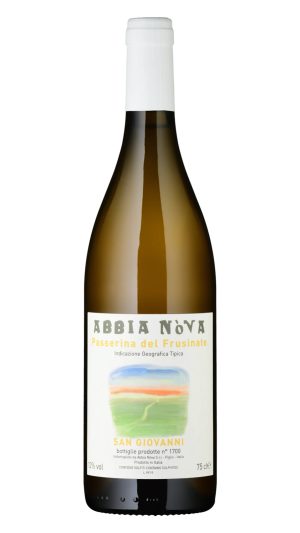Abbia Nova Rosato del Frusinate Berlame IGT 2021
Type: Rose
Country: Italy
Region: Lazio, Piglio
Grape Variety: 50% Cesanese d’Affile, 50% Cesanese Nostrano
Alcohol Percentage: 13%
Viticulture: Natural Wine | Certified Organic | Vegan Friendly
Climate: Temperate
Terroir: Vineyards lie on a soilbed of clay and sandstone. Average age of vines is between 18 – 21 years
Ageing: Hand harvested, whole cluster, 12-16 hour maceration, direct press, spontaneous fermentation in stainless steel with indigenous yeasts. Aged 2 months in demijohns, sur lie. No fining, no filtration, only 15mg/l of S02 is added for stability
Color: Bright red
Nose: Punch of fresh strawberries, cherries and aromatic roses
Palate: Elegant and light with wonderful hints of strawberries and currants
About the Winery:
A cluster of terrestrial islands in the town of Piglio, a group of small and medium-sized parcels, each with its own personality, together they form an alternation of farming and nature.
Daniele Proietti and Pierluca Proietti command these seven hectares of parcels, mostly on important cru sites in the appellation of Cesanese del Piglio DOCG, where viticulture dates back to the Roman Empire. Some of the vineyards are home to ancient archaeological finds of Nerva and Traiano’s villas that prove their very long history. The vineyards are between 15 and 90 years old and have either been inherited or acquired by the family throughout the years. In addition to the vines, they cultivate 1000 indigenous olive trees, walnuts, officinal herbs and a vegetable garden.
The family began to approach natural farming in the 80s, through organic agriculture at first and later when Daniele and Pierluca delved into the application of biodynamic principles, the study of Fukuoka’s natural method and the use of homoeopathy in agriculture.
They tried blending these theoretical and practical experiences with a winemaking tradition that is inspired by the approach of Roman agronomists like Columella and Catone, the very first examples of natural viticulture in this area. In the vineyard, for example, they’ve substituted copper and sulphur with natural resistance activators that they often produce themselves. The most important thing for them is to give energy to the vines by fostering the fertility of the soil and the plant’s wood.
They follow a natural and traditional method in the cellar as well, focusing on their personal taste: expressive wines that are able to convey a deep immediate message and don’t need too many words to be fathomed. They vinify them in an absolutely natural manner using steel, concrete, amphoras, and glass demijohns: their only tools. There are no added substances and yeasts. They use a very small amount of sulphur whenever necessary, but in general, their wines have very little amounts of it.




